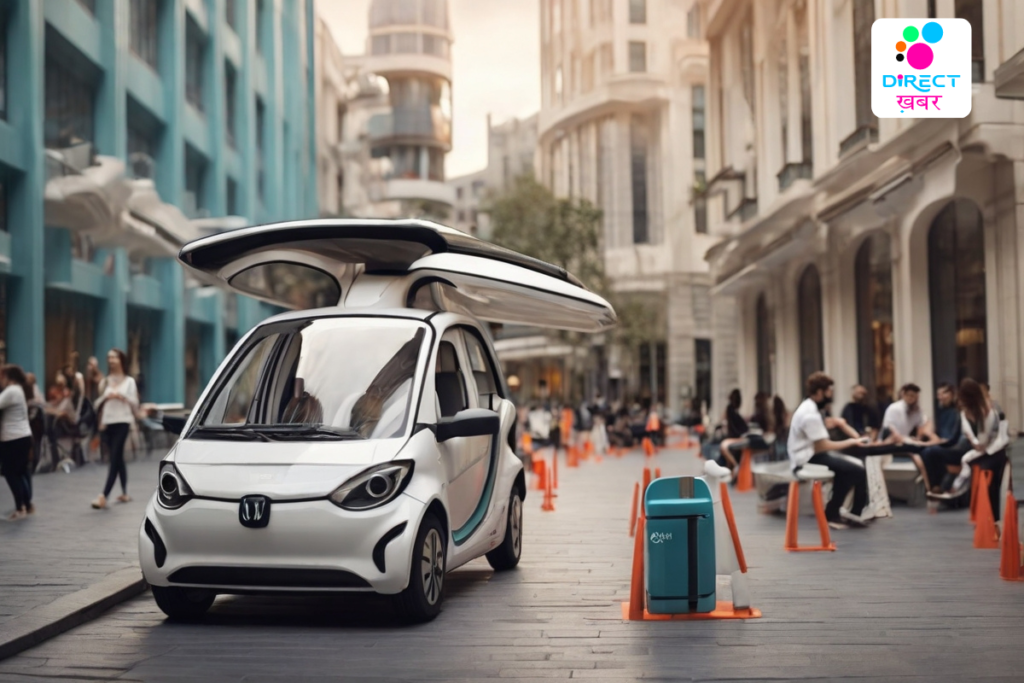The Future of Car Sharing: Trends and Opportunities
In recent years, vehicle sharing has emerged as a disruptive force in the transportation industry, offering convenient, cost-effective, and sustainable mobility solutions. As technology advances and consumer preferences evolve, the future of vehicle sharing holds exciting prospects. This article explores key trends and opportunities shaping the future of vehicle sharing.
Advancements in Technology:
- Autonomous Vehicles: The integration of autonomous technology promises to revolutionize vehicle sharing by reducing operational costs and enhancing user experience. Self-driving vehicle could offer on-demand mobility services without the need for human drivers.
- Blockchain and Smart Contracts: Blockchain technology can enhance security, transparency, and trust in vehicle sharing transactions. Smart contracts enable automated payment processing and vehicle access, streamlining the user experience.

Shift towards Electric and Sustainable Mobility:
- Rise of Electric Car Sharing: With growing environmental concerns and stricter regulations, electric vehicle sharing is gaining momentum. Electric vehicles (EVs) offer lower operating costs and reduced carbon emissions, aligning with sustainability goals.
- Integration with Public Transport: vehicle sharing services are increasingly integrated with public transportation networks, providing users with seamless multimodal journeys. This trend promotes sustainable urban mobility and reduces reliance on private vehicle ownership.
Expansion of Peer-to-Peer (P2P) Car Sharing:
- Unlocking Underutilized Assets: P2P vehicle sharing platforms enable individuals to rent out their underutilized vehicles to other users, maximizing asset utilization and generating additional income. This model offers a more diverse vehicle fleet and greater geographic coverage.
- Trust and Verification Mechanisms: Effective trust and verification mechanisms are crucial for P2P vehicle sharing platforms to ensure the safety and reliability of transactions. Innovations in identity verification, insurance coverage, and user ratings enhance trust among participants.
Personalization and Mobility-as-a-Service (MaaS):
- Customized Mobility Solutions: vehicle sharing providers are leveraging data analytics and machine learning algorithms to personalize services according to user preferences and behavior. Tailored recommendations, flexible pricing models, and loyalty programs enhance user satisfaction and retention.
- Integration into MaaS Ecosystems: Car sharing is becoming an integral component of Mobility-as-a-Service (MaaS) ecosystems, where users can access various transportation options through a single platform. This seamless integration simplifies trip planning and encourages modal shift away from private car ownership.
Collaboration and Partnerships:
- Strategic Alliances with OEMs: Car sharing companies are forming strategic partnerships with original equipment manufacturers (OEMs) to access vehicle fleets, technology infrastructure, and maintenance support. These collaborations facilitate fleet electrification and technological innovation.
- Integration with Ride-Hailing Services: Integration between car sharing and ride-hailing services offers users greater flexibility in choosing transportation modes based on their specific needs and preferences. This convergence strengthens the overall mobility ecosystem and enhances service offerings.

Regulatory and Policy Considerations:
- Supportive Regulations: Governments play a vital role in fostering the growth of car sharing through supportive policies, such as incentives for electric vehicle adoption, parking privileges, and dedicated lanes for shared mobility services. Clear and consistent regulations promote market certainty and facilitate industry innovation.
- Data Privacy and Security: As car sharing involves the collection and processing of sensitive user data, policymakers need to establish robust data privacy and security regulations to protect consumer interests and ensure compliance with regulatory requirements.
The future of car sharing is shaped by technological innovation, sustainability imperatives, shifting consumer preferences, and regulatory frameworks. Advancements in autonomous technology, electric mobility, peer-to-peer sharing, personalization, collaboration, and supportive policies present exciting opportunities for the evolution and expansion of car sharing services.
As technology advances and consumer preferences evolve, the future of car sharing holds exciting prospects. This article explores key trends and opportunities shaping the future of car sharing.
By embracing these trends and addressing associated challenges, car sharing providers can position themselves as key players in the future of urban mobility, offering convenient, sustainable, and accessible transportation solutions.






